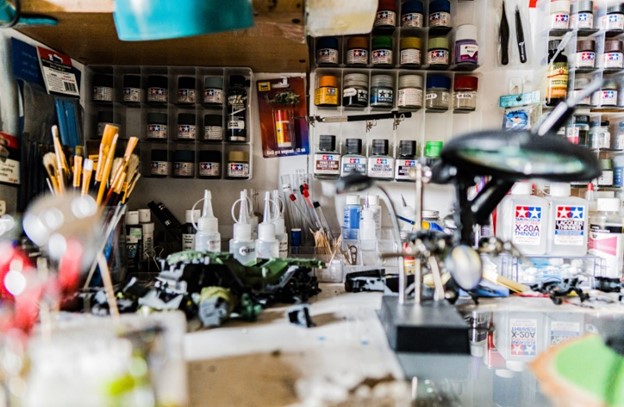Expert WItness – Biomaterials
Biomaterials in the Bioeconomy
In the bioeconomy, biomaterials (bio-based materials) are the pillars of innovation and sustainability. These materials, derived from living or once-living organisms, offer a renewable and environmentally friendly alternative to traditional petroleum-based products. By harnessing the inherent properties of these biological resources, bio-based materials reduce carbon emissions, conserve finite fossil fuel reserves, and foster a more sustainable future.
The Significance of Biomaterials
Biomaterials play a significant role in advancing sustainability across many sectors of the economy. Unlike conventional materials like plastics, which are sourced from fossil fuels, bio-based materials are derived from renewable resources, including plants, animals, and microorganisms. This inherent renewability ensures a more sustainable production process and reduces dependence on finite resources, thereby mitigating environmental degradation and promoting long-term ecological resilience.
Diverse Range of Biomaterials
The term “bio-based materials” encompasses a wide range of substances, each offering unique properties and applications. Natural fibers like cotton, wool, and hemp serve as alternatives to synthetic textiles, providing biodegradable and compostable options for clothing, upholstery, and packaging. Advanced bioplastics, derived from agricultural feedstocks such as corn, sugarcane, and soybeans, offer a sustainable alternative to conventional plastics, with applications ranging from food packaging to automotive components.
Processing and Transformation
Bio-based materials undergo various processing techniques to transform raw biological feedstocks into functional products suitable for diverse applications. These processes may include fermentation, enzymatic conversion, polymerization, and extrusion, among others. Through advanced biotechnological methods, researchers and manufacturers can optimize the properties and performance of bio-based materials, enhancing their durability, strength, and versatility.
Expanding the Scope: Beyond Medical Applications
While the term “biomaterials” may be commonly associated with medical devices and implants, its application within the bioeconomy extends far beyond healthcare. In addition to medical applications, biomaterials are widely used in industries such as construction, packaging, textiles, automotive manufacturing, and consumer goods. From biodegradable packaging materials to eco-friendly building materials, biomaterials offer a diverse range of sustainable solutions that align with the principles of circularity and resource efficiency.
Expert Witness Support from Consulting Firms
Specialists in biomaterials often serve as expert witnesses in related claims, litigation, arbitration, and mediation. They can assist with case evaluation, conducting thorough reviews and analyses of biomaterial-related claims and disputes, identifying key issues, assessing strengths and weaknesses, and offering strategic guidance to legal teams. They can generate comprehensive technical reports outlining their findings, analyses, and opinions to support legal arguments and facilitate case resolution. They can serve as expert witnesses in court when needed. These experts are often called upon to give their opinions about matters such as:
Material Compatibility: Experts might test the biocompatibility of biomaterials used, assess their suitability for use in a particular situation, and identify potential risks.
Failure Analysis: Experts might testify on the root causes of product failures involving biomaterials, conducting analyses to determine whether failures were due to material defects, manufacturing errors, design flaws, or improper use.
Safety and Health Risks: In lawsuits alleging harm or injury caused by exposure to biomaterials, experts might testify about the potential health risks associated with specific materials, such as allergic reactions, toxicity, or carcinogenicity.
Environmental Impact: Experts could provide testimony on the environmental impact of biomaterials, including their biodegradability, recyclability, and contributions to reducing carbon emissions and environmental pollution.
Regulatory Compliance: Experts might test whether biomaterial-based products comply with relevant regulatory requirements, including safety standards, labeling regulations, and environmental regulations.
Market Practices and Standards: In cases of fraud or misrepresentation, experts could testify about industry practices, standards, and norms related to the production, marketing, and labeling of biomaterial-based products.
Damages Assessment: Experts might provide testimony on the economic damages incurred due to biomaterial-related disputes, including the costs of product recalls, medical treatments, lost revenues, and reputational damage.
Intellectual Property: In cases involving patent infringement or intellectual property disputes, experts could testify about the novelty, inventiveness, and patentability of biomaterial-related inventions and technologies.
Industry Best Practices: Experts might testify on best practices in the development, testing, and manufacturing of biomaterial-based products, helping establish whether defendants adhered to accepted industry standards and guidelines.
Product Performance: Experts might testify about the performance characteristics of biomaterial-based products, including their mechanical strength, durability, and resistance to wear and tear. They could provide insights into whether a product met industry standards and specifications or failed to perform as expected.
LEC Partners
At LEC Partners, we offer various services across virtually every facet of the bioeconomy. While serving as expert witnesses represents only a fraction of their responsibilities, most of our 180+ experts are available to provide their expertise as expert witnesses. Like any reputable expert witness, our specialists consistently deliver impartial and unbiased results. They have undergone rigorous in-house training on their role in litigation, understand the Daubert qualification standards, and are versed in the rules of evidence and civil procedure applicable to experts. Before accepting any assignment, we meticulously assess whether the experts possess the necessary specialization and conduct thorough conflict checks. If you need assistance with your biomaterials project(s), please contact us.
For a complete discussion on expert witnesses and hiring those in the bioeconomy, see our two articles: ”The Expert Witness in Biofuels and Biochemicals Litigation” and “Hiring An Expert Witness in The Bioeconomy.”
Have some questions?
Not sure where to start?
Let's start a conversation. We're here to help you navigate
the bioeconomy with confidence.

